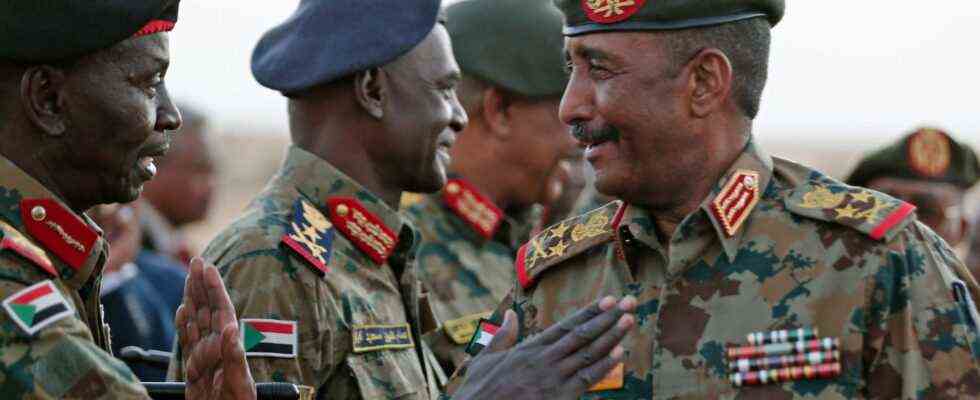Status: 10/27/2021 6:55 a.m.
The coup plotters in Sudan claim to be the saviors of the nation. In fact, their primary concern is power, privilege, and profits. The military protects its benefices and acts according to a well-known pattern.
On Monday afternoon, shortly after the coup, General Abdel Fatah al Burhan declared a state of emergency in Sudan. Just a few hours later, in Cairo, President Abdel Fatah al Sisi declared the state of emergency for Egypt over. Coincidence or not: The fact that the transitional government in neighboring Sudan was pushed away – and with it the hope of free elections, a civilian government and the country’s democratic development – is good news, at least for Sisi. Because nothing would have threatened the regime on the Lower Nile as a successful revolution on the Upper Nile.
The Sudanese had shown the Egyptians that things can be changed in the Arab world. The coup in Sudan has done that for now. The generals in the Egyptian military will find it easy to identify with their comrades in Khartoum. Similar to Cairo in 2013, the Sudanese military is now presenting itself as the savior of the nation. As in 2013 in Cairo, the real issue is to secure power and privileges.
The economic interests of the military
Sudan’s ailing economy – this is also a parallel to Egypt – is largely controlled by the military. Oil production, flour mills, construction companies, mobile communications and the import of electronics are all subject to the so-called “Military Industry Corporation”, and their profit flows into the pockets of the military elite. At least 200 companies are owned by the military, with an estimated annual revenue of two billion dollars.
At the beginning of the year, Prime Minister Abdalla Hamdok persuaded the military to hand over the civilian business to the Ministry of Finance. Had there been free elections in the coming year – as agreed – and a purely civilian government in 2023, the Sudanese officer corps would have lost one of its most important sources of income.
A notorious actor in the background
One of the central figures in the military apparatus is a man who remained invisible during the coup: General Mohamed Dagalo, also known as “Hemeti”. He commands the paramilitary RSF, the Rapid Support Forces, which are now again on the streets of Khartoum against demonstrators in action. Hemeti commanded the RSF during the war in Darfur and has been accused of serious war crimes such as massacre and rape. Unscrupulous and seasoned at the same time, he leads one of the most influential tribes in the West, the Rezigat.
Although he remains in the background in the current coup, Hemiti is considered the real strong man in Sudan. Hemeti is also very well connected on the Arabian Peninsula. Saudi Arabia and the United Arab Emirates recruited him and his paramilitary force for the wars in Yemen and Libya, allegedly making thousands of his men available.
With generals like him and Burhan, Sudan is now threatened with falling back into dark times. The civilian members of the transitional government were abducted to unknown locations. The old guard returns to Khartoum’s government palace, a corrupt clique of uniformed men. Egypt, the United Arab Emirates and Saudi Arabia now have allies again in Sudan.
The face of the coup in Sudan, but probably not the driving force: General Burhan
Image: AP
Is not in the first line, but is considered a strong man of the junta: General Dagalo, known as Hemeti
Image: AFP
Sudan: Who will benefit from the coup in Khartoum?
Martin Durm, SWR, 10/26/2021 5:11 p.m.

